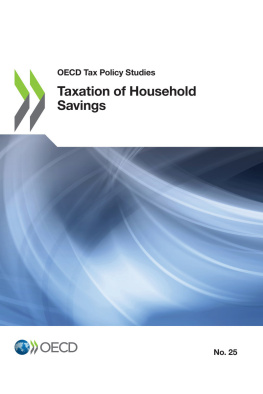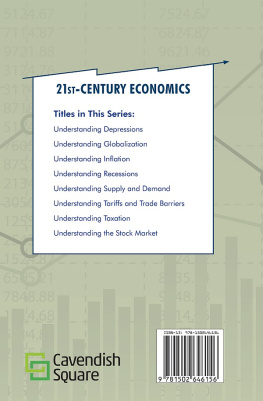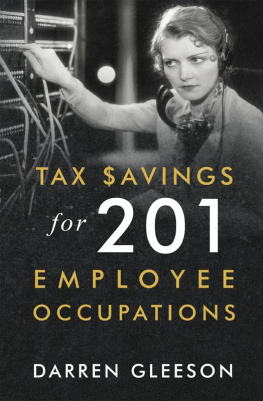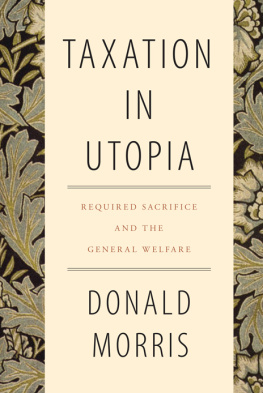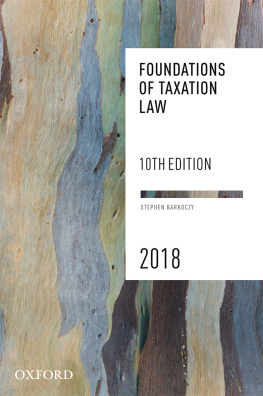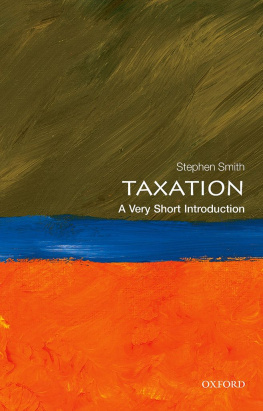coll. - Taxation of household savings
Here you can read online coll. - Taxation of household savings full text of the book (entire story) in english for free. Download pdf and epub, get meaning, cover and reviews about this ebook. year: 2018, publisher: Organization for Economic Cooperation and Development, genre: Politics. Description of the work, (preface) as well as reviews are available. Best literature library LitArk.com created for fans of good reading and offers a wide selection of genres:
Romance novel
Science fiction
Adventure
Detective
Science
History
Home and family
Prose
Art
Politics
Computer
Non-fiction
Religion
Business
Children
Humor
Choose a favorite category and find really read worthwhile books. Enjoy immersion in the world of imagination, feel the emotions of the characters or learn something new for yourself, make an fascinating discovery.
Taxation of household savings: summary, description and annotation
We offer to read an annotation, description, summary or preface (depends on what the author of the book "Taxation of household savings" wrote himself). If you haven't found the necessary information about the book — write in the comments, we will try to find it.
Taxation of household savings — read online for free the complete book (whole text) full work
Below is the text of the book, divided by pages. System saving the place of the last page read, allows you to conveniently read the book "Taxation of household savings" online for free, without having to search again every time where you left off. Put a bookmark, and you can go to the page where you finished reading at any time.
Font size:
Interval:
Bookmark:
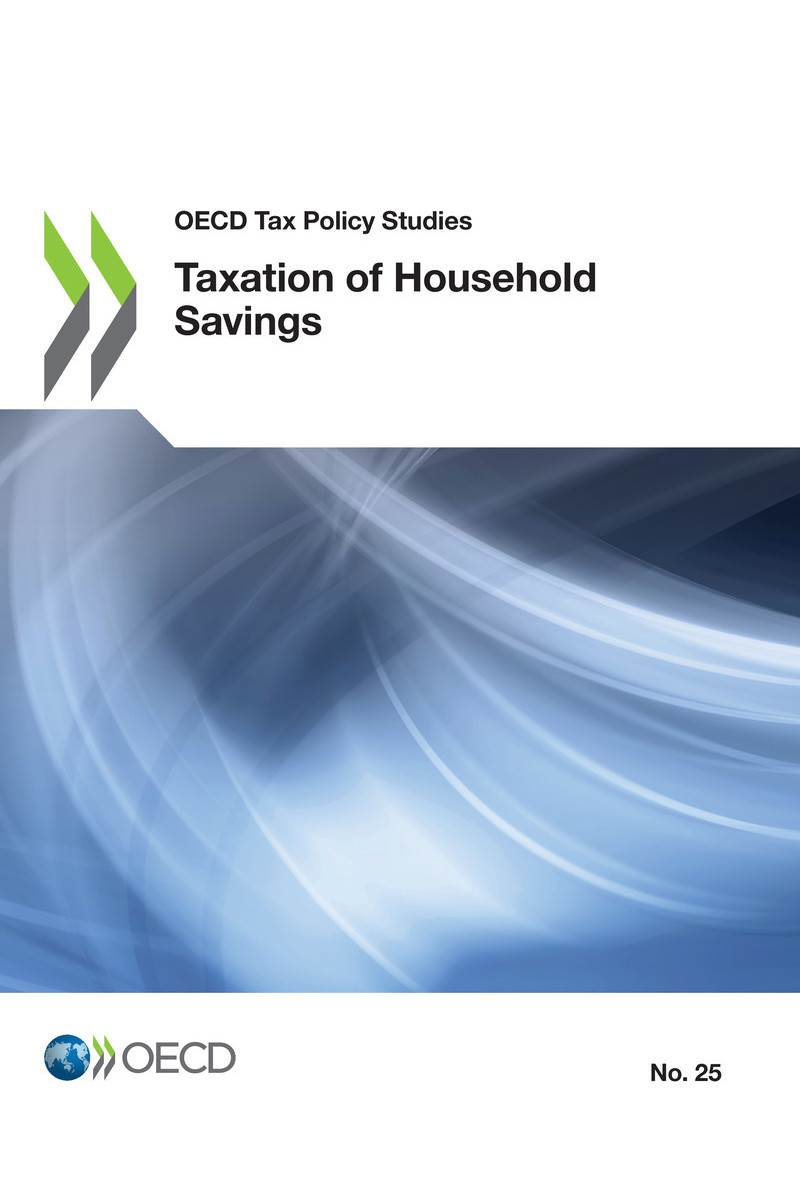
OECD (2018), Taxation of Household Savings , OECD Tax Policy Studies, OECD Publishing, Paris.
http://dx.doi.org/10.1787/9789264289536-en
In 1994, following widespread reforms to the taxation of capital income and wealth in member countries, the OECD released a landmark report on Taxation and Household Savings. A range of recent developments make a re-examination of the topic timely. In particular, income and wealth inequality has increased in many countries. This has been brought into particular focus as a result of the 2008 global financial and economic crisis, leading to strong calls for greater taxation of capital income and wealth in many countries. Furthermore, ground-breaking changes are being made in the international tax environment to prevent capital income and wealth being hidden offshore. Meanwhile, concern about low levels of retirement savings persist, particularly in light of continued population ageing.
This report provides a detailed review of the taxation of household savings in 40 OECD and key partner countries in light of these and other developments. It examines the different approaches that countries take to taxing savings and calculates marginal effective tax rates to quantify the incentives created by these approaches; examines the distribution of asset holdings in a range of OECD countries; examines the recent changes in the international tax environment; and discusses the implications of the analysis for savings tax policy.
While countries do not necessarily need to tax savings more, the analysis shows that there is significant scope to improve the way countries tax savings to foster inclusive growth. Most significantly, there are opportunities for countries to increase neutrality in taxation across assets and thereby improve both the efficiency and fairness of their tax systems. At the same time, there remains a case for preferential tax treatment of private pensions in order to encourage retirement savings. There are also opportunities for improvement in tax design regarding private pensions and in a number of other areas such as residential property.
This report provides policymakers with the empirical evidence and the practical policy recommendations needed to ensure a more coherent and effective approach to the taxation of household savings.
This study was produced by the Tax Policy and Statistics Division of the OECD Centre for Tax Policy and Administration (CTPA) with the financial support of the Korea Institute of Public Finance (KIPF).
The study was led by Alastair Thomas of the CTPA, under the supervision of Bert Brys. was prepared by Sarita Gomez and Pierce OReilly. The underlying METR methodology was developed by Bert Brys.
The study has drawn on information and comments received from delegates to Working Party No. 2 on Tax Policy Analysis and Tax Statistics of the OECD Committee on Fiscal Affairs. The project was carried out under the guidance of David Bradbury. It has also benefitted from comments and suggestions provided by Monica Bhatia, Anzhela Cdelle, Dnal Godfrey, Eric Hantala, Michelle Harding, Radhanath Housden, Philip Kerfs, Jeremy Maddison, Giorgia Maffini, Dario Oriolo, Stphanie Payet, Sarah Perret and Achim Pross. Background research and assistance provided by Melanie Marten and Bethany Millar-Powell is also gratefully acknowledged. Michael Sharratt provided support on graphical issues. Carrie Tyler assisted with the publication process. Violet Sochay provided administrative assistance.
Following the 2008 financial and economic crisis, there has been renewed interest in the taxation of household savings as a means of strengthening the efficiency and fairness of countries tax systems. Strong calls have come from civil society to increase capital taxation to address income and wealth inequality. Meanwhile, the recent move towards the automatic exchange of financial account information between tax administrations is likely to make it harder for taxpayers to evade tax by hiding income and wealth offshore.
This report provides a detailed and timely review of the taxation of household savings in OECD and five key partner countries in light of these and other developments. The report finds that, while countries do not necessarily need to tax savings more, there is significant scope to improve the way they tax savings. Most significantly, there are opportunities for countries to increase the neutrality of taxation across assets and thereby improve both the efficiency and fairness of their tax systems.
The lack of neutrality in the taxation of savings is illustrated by marginal effective tax rate (METR) modelling undertaken for 40 OECD and key partner countries across a range of potential savings options. METR modelling enables the impact of a wide range of taxes and tax design features to be incorporated into a single indicator. The results highlight significant variation in METRs across assets, with tax systems creating significant incentives to alter savings portfolio allocation away from that which would be optimal in the absence of taxation.
Private pension funds tend to be the most tax-favoured form of saving, with owner-occupied residential property also significantly tax-favoured. In contrast to owner-occupied residential property, rental property is often subject to relatively high METRs due to the application of progressive marginal personal income tax rates, capital gains taxes and property taxes. Bank accounts and corporate bonds also tend to be relatively heavily taxed in many countries.
Font size:
Interval:
Bookmark:
Similar books «Taxation of household savings»
Look at similar books to Taxation of household savings. We have selected literature similar in name and meaning in the hope of providing readers with more options to find new, interesting, not yet read works.
Discussion, reviews of the book Taxation of household savings and just readers' own opinions. Leave your comments, write what you think about the work, its meaning or the main characters. Specify what exactly you liked and what you didn't like, and why you think so.

